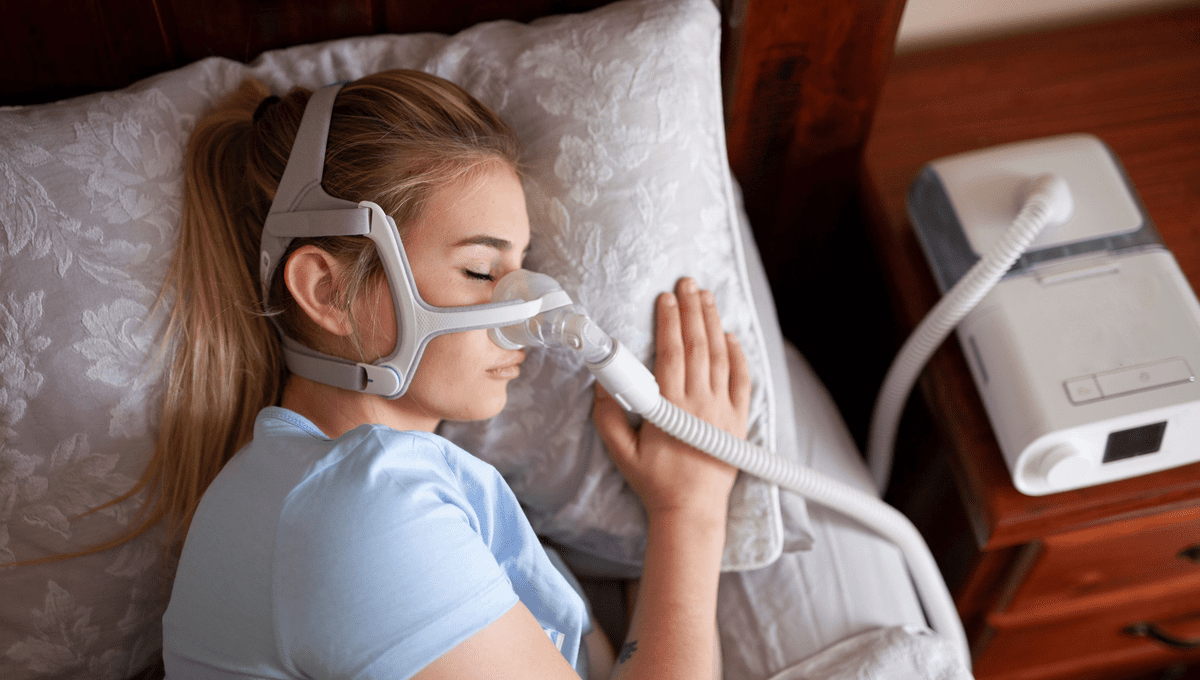
The human body is a mind-bogglingly amazing thing… most of the time. Like any piece of kit, it has a few glitches: there’s that area in the middle-distance that our eyes just blank on, leaving our brains to try to fill it in with a best guess; our backs, and ankles, which were never fit for purpose if we’re honest; and let’s not even start on the whole mess that is the genitals.
But none of those are as immediately problematic as sleep apnea, a condition where your body occasionally just stops breathing while you snooze.
“Obstructive sleep apnea can be a debilitating disease, causing poor quality sleep at night and sleepiness during the day,” explained Dr Thomas Altree, a sleep clinician from Flinders Health and Medical Research Institute: Sleep Health, in a statement. “It affects millions… and causes major impacts on health and productivity.”
Those “major impacts” can be everything from mood swings and headaches to a dramatically increased risk of fatal heart attacks and strokes – which makes finding treatments for this deceptively common condition quite a priority. But now, thanks to a new study by Altree and his colleagues, a whole new avenue of drug therapies may be about to open up.
“Recent research found a combination of the medicines reboxetine and oxybutynin, which were both previously used for unrelated conditions, could be an effective treatment for obstructive sleep apnea,” Altree said.
But that combination came with side effects: oxybutynin is what’s known as an antimuscarinic drug, traditionally used to treat overactive bladder conditions, and while clinical trials did indeed show a reduction in sleep apnea events, they also showed a reduction in things like being able to pee or have sex.
So, with their new study, the researchers switched the recipe up a little. “We wanted to see if reboxetine on its own could be effective,” Altree explained, “and assess exactly how it changes breathing during sleep.”
The team, along with collaborators at the Woolcock Institute of Medical Research in Sydney, recruited 16 obstructive sleep apnea patients to test the drug. That’s not a huge sample size, but the study itself – a double-blind, placebo-controlled, randomized trial, testing single doses of reboxetine compared to a combination of reboxetine and oxybutynin or a placebo – is pretty much the gold standard for clinical trials, making the results potentially important additions to the literature.
But what were those results? Well, it turns out the team’s hunch was correct: “Our results showed that reboxetine on its own can reduce sleep apnea severity,” Altree said. “We found the drug reduced the number of sleep apnea events per hour and also improved oxygen levels, while the addition of oxybutynin didn’t cause additional improvements.”
It’s great news: reboxetine, previously used as an antidepressant, could be used on its own as a treatment for sleep apnea. It’s a development that could improve millions of lives – not to mention provide insight into the role of this specific type of treatment on upper airway stability.
But we know what you’re thinking – we promised you a paradigm shift, not just a fine-tuning of an existing therapy. Well, here’s the extra-cool bit. Sleep apnea, currently, is one of those conditions where we’ve found a ton of individual causes but only really one or two treatments. And that’s a problem.
“The current gold-standard treatment of sleep apnea is with a CPAP device during sleep,” Altree pointed out. “But this one-size-fits-all approach doesn’t address the fact that there are different causes for sleep apnea. In addition, many people can’t tolerate CPAP in the long term.”
But during their study, the team took the opportunity to delve a little deeper – measuring not just whether the therapy was working, but also why. “We… used a state-of-the-art computing method to determine how the drug stabilizes breathing during sleep,” Altree explained, “which allows us to identify which patients might benefit most from the drug in the future.”
Thanks to cutting-edge technology, the team were able to not just find a treatment for sleep apnea, but also to figure out who that treatment would work best for. For millions of obstructive sleep apnoea patients around the globe, that might just be a game-changing development: the first step towards the development of drug-based treatments that remove the need for intrusive and uncomfortable tools like CPAP machines.
“It’s… important we discover other avenues to assist people,” Altree said, “and this study provides an important step for future drug development.”
The study is published in the Journal of Clinical Sleep Medicine.
Source Link: Promising Treatment For Sleep Apnea Opens Up New Therapeutic Possibilities